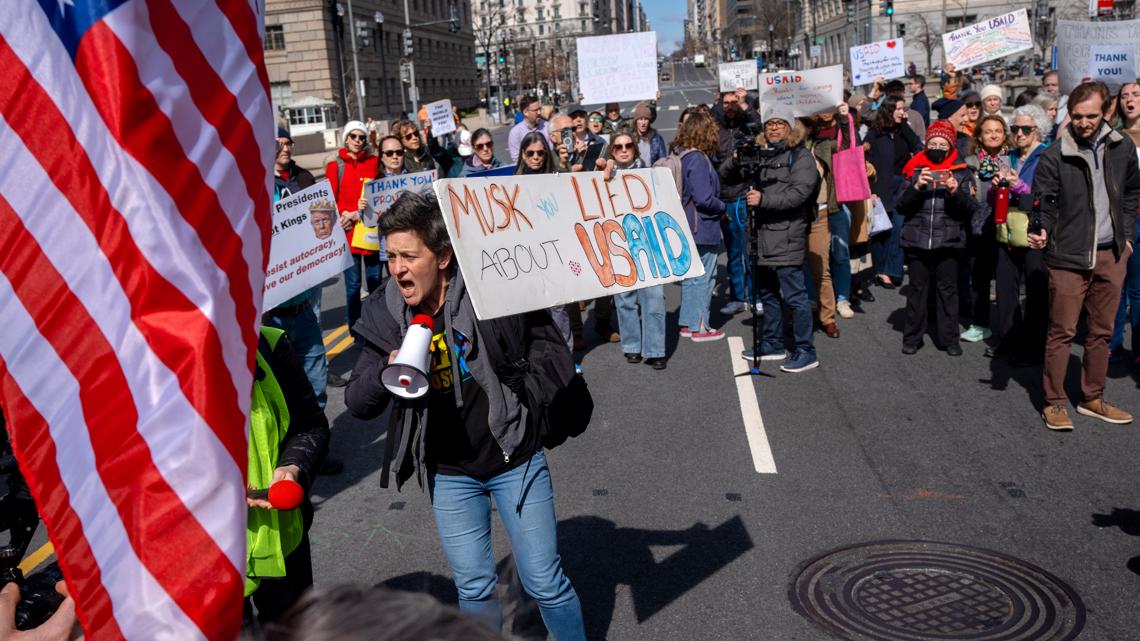
A federal judge in Maryland has blocked Elon Musk and the Department of Government Efficiency (DOGE) from taking further steps to dismantle the U.S. Agency for International Development, ruling the effort likely violated the Constitution.
The preliminary injunction, issued by U.S. District Judge Theodore Chuang, ordered Musk and DOGE to restore access to USAID’s systems for employees and contractors who were abruptly cut off in early February. The ruling stems from a lawsuit filed by 26 anonymous USAID staffers and contractors, arguing that Musk had exercised federal power without Senate confirmation.
Chuang, who was appointed under President Obama, sided with the plaintiffs, stating that Musk and DOGE “likely violated the United States Constitution in multiple ways, and that these actions harmed not only the plaintiffs, but also the public interest.”
In response to the decision, Norm Eisen, attorney for the plaintiffs and executive chair of the State Democracy Defenders Fund, called the ruling “an important victory against Elon Musk and his DOGE attack on USAID, the U.S. government, and the Constitution.”
The case marks a significant legal setback for Musk and his expanding government footprint through DOGE, a crypto-funded agency created to “streamline” federal functions. Since President Donald Trump’s return to office, DOGE has led the charge to drastically cut U.S. foreign aid, with USAID as the primary target.
Just hours after taking office, Trump ordered a 90-day freeze on all U.S. foreign aid. DOGE moved quickly. Employees were locked out of email and payment systems. Thousands were placed on unpaid leave. Programs in over 100 countries ground to a halt.
On February 3, Musk posted on X about how he had “spent the weekend feeding USAID into the wood chipper.”
The lawsuit alleges that Musk, though not confirmed by the Senate, effectively operated as a federal officer, issuing directives that agency leadership followed. Chuang’s ruling did not undo all personnel terminations. Still, it stopped further steps by Musk or DOGE and barred them from disclosing any employee data.
The White House has vowed to challenge the ruling.
“I guarantee you we will be appealing it. We have rogue judges that are destroying our country,” Trump told Fox News on “The Ingraham Angle.”
Despite the legal freeze, damage to USAID’s global footprint is already extensive. According to Secretary of State Marco Rubio, more than 80% of USAID’s programs have been cut. Staff have been reassigned or terminated. Humanitarian operations in dozens of countries remain frozen.
“We are reorienting our foreign assistance programmes to align directly with what is best for the United States and our citizens,” Rubio said last month, defending the overhaul.
The ruling comes amid leadership upheaval inside the State Department. Pete Marocco, the official overseeing the USAID shutdown, recently departed the agency. A senior administration official described his work as a “historic task” to expose misused taxpayer dollars.
Marocco’s exit followed reported friction with Rubio’s team over the depth and pace of cuts. His next role in the administration, if any, remains unclear for the time being.
While Chuang’s ruling addressed constitutional concerns about Musk’s authority, a separate federal case is probing the financial fallout from the shutdown. In Washington, Judge Amir Ali recently ordered the administration to release nearly $2 billion in frozen contractor payments. The funds were due for completed work under USAID before programs were terminated.
The government missed its March 10 deadline to make the first set of payments. It has since been ordered to produce a payment schedule.
The Musk-DOGE takeover attempt, legal analysts suggest, is shaping up as a defining constitutional test—one that blends executive power, private influence, and the fragility of institutional checks.
Though temporary, the injunction signals a firm judicial stance on the separation of powers. Whether that holds through appeal could determine the long-term fate of not just USAID, but the role private individuals can play in shaping U.S. foreign policy from the inside.
For now, the court has drawn a line. And for thousands of displaced development professionals around the world, that line may be the only thing standing between institutional reform and constitutional rupture.
Continue your reading by clicking here.
Share this article: